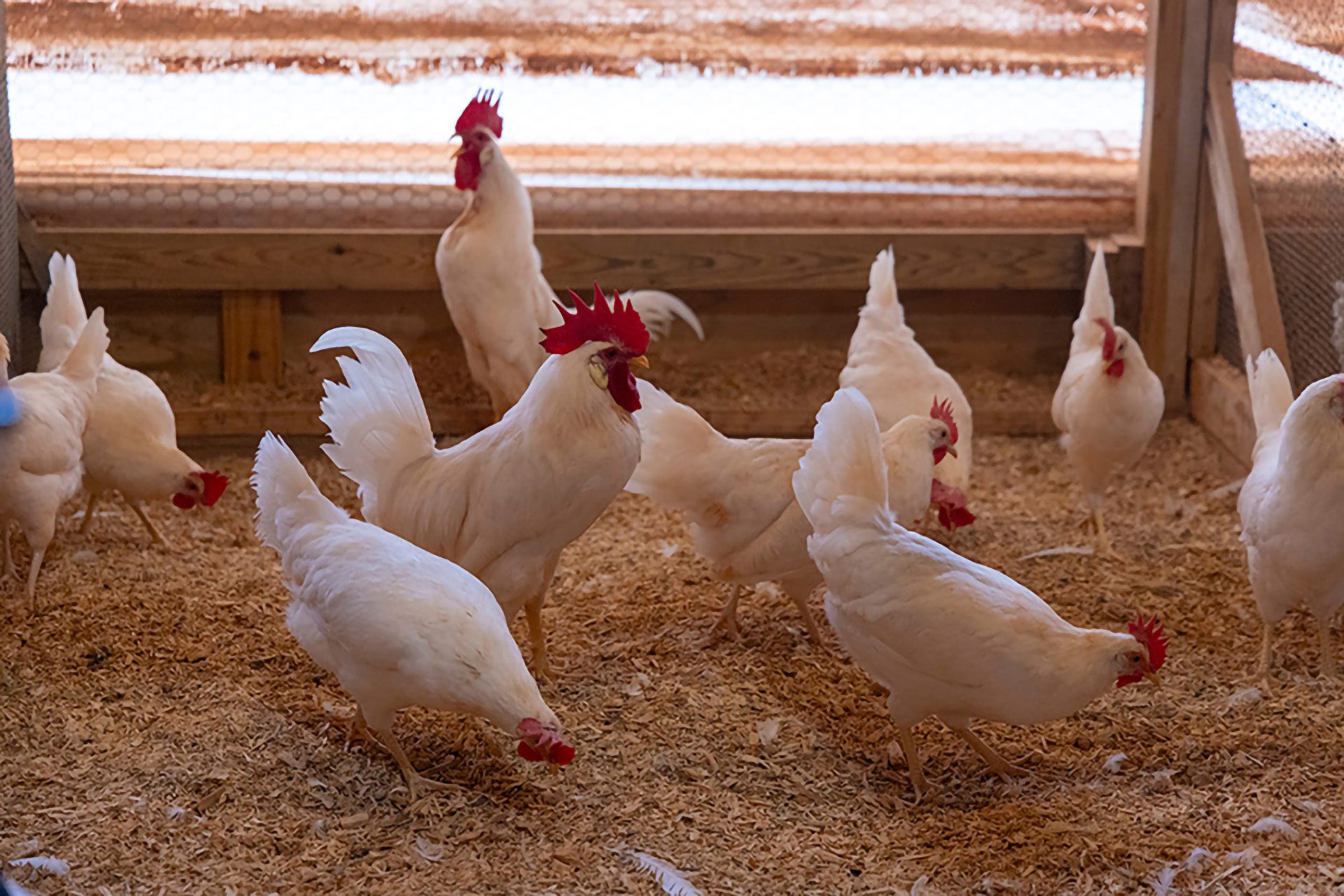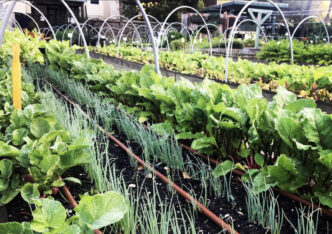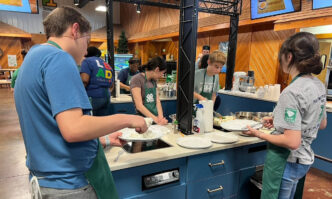Consumers want antibiotic-free meat and farmers need reliable ways to keep their flocks healthy. Clemson University is helping meet both goals through research that explores natural alternatives to antibiotics in poultry production.
The poultry industry is big, bringing in $2.5 billion annually for the South Carolina economy. A common gut disease in chickens, called necrotic enteritis (NE), creates an economic burden due to reduced production, increased mortality and the need for expensive treatments.
Antibiotics are often used to treat this disease. But Clemson University researchers say natural products like black cumin, kefir and bacteriophages may work just as well — and meet the growing demand for antibiotic-free chicken.
“We’re learning how gut bacteria affect chicken health,” said Vishal Manjunatha, a Clemson researcher who recently graduated with a doctorate in food, nutrition and packaging sciences. “This can help farmers use fewer antibiotics and still keep chickens healthy.”
Natural feed additives show promise
In his study, Exploring natural products as alternatives to antibiotics…, Manjunatha found several natural ingredients that help fight NE in chickens:
- Black cumin oil helps chickens survive NE and protects their intestines without affecting growth.
- A mix of black cumin and bacteriophages stops chickens from dying from NE and improves gut health. (Bacteriophages are viruses that kill only harmful bacteria.)
- Kefir, a drink made from fermented milk, boosts the immune system and helps good bacteria grow in the gut.
For his study, Manjunatha used black cumin (Nigella sativa) in two forms:
- Black cumin oil at 2 mL to 5 mL per kilogram of feed (approximately 0.18% to 0.46% by weight), and
- Black cumin seeds at 5% of the total feed weight.
Studying the DNA of gut bacteria helps researchers find what causes disease, which leads to better prevention.
“These results are exciting,” Manjunatha said. “Natural feed additives can really help poultry farmers.”
Why this matters to consumers
The U.S. poultry industry adds more than $663 billion annually to the national economy. But NE can cost poultry producers as much as 6 cents per bird.
As the use of antibiotics in raising animals becomes more concerning, many shoppers are now looking for chicken labeled “raised without antibiotics.” And research shows they are willing to pay extra for it.
A recent United States Department of Agriculture study found:
- Household spending on antibiotic-free poultry increased by 7% to 11% annually over six years.
- Consumer awareness of antibiotic use in meat production has grown.
- Demand for products labeled “raised without antibiotics” continues to rise.
Many people want meat from animals that weren’t given antibiotics. Because of this, the poultry industry is looking for safe, natural ways to keep birds healthy.
“Finding natural ways to stop NE is significant,” said Xiuping Jiang, a Clemson professor who worked with Manjunatha on the research. “This research, funded by the South Carolina Department of Agriculture’s ACRE program, is a big step forward.”
Kyle Player, ACRE’s director, said the project is one of many that ACRE supports.
“ACRE helps fund useful research for agriculture in South Carolina,” Player said. “This study gives consumers more choices and shows how ACRE-backed research can make a difference.”
Steps toward antibiotic-free chicken farming
For farmers interested in raising antibiotic-free chickens, Manjunatha recommends:
- Adding black cumin to chicken feed for gut health.
- Using kefir to strengthen the immune system.
- Using bacteriophages to target harmful bacteria.
- Combining black cumin and kefir for even better results.
“With good science and easy tools, we can now take real steps toward raising chickens without antibiotics,” Jiang said.
Since these additives are easy to get, they can be used by large poultry farms and small backyard flocks alike.
For more, see Manjunatha’s article Natural alternatives to antibiotics are a game changer for poultry health in Modern Poultry.
The poultry industry is an economic driver for South Carolina. Broilers and turkeys are two of the state’s Top 10 commodities.







